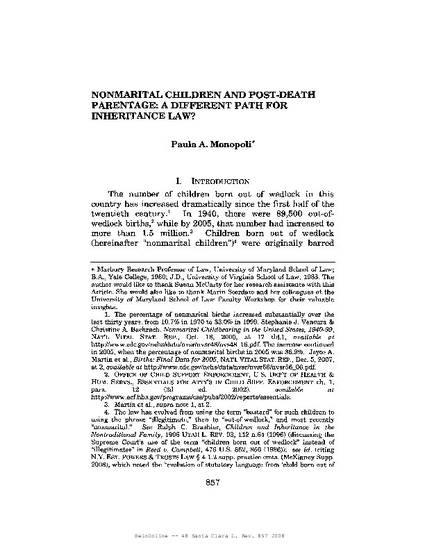
- nonmarital children,
- inheritance law
Historically, nonmarital children were treated as “filius nullius,” the child of no one. American jurisprudence has evolved to embrace these children and to err on the side of treating them in the same manner as marital children. Much of inheritance law is concerned with establishing a parent-child relationship in order to determine one’s eligibility to inherit. The 1970s saw several United States Supreme Court cases address the issue of state inheritance statutes that imposed a higher burden on nonmarital children in establishing a parent-child relationship for purposes of inheritance. Some of these state statutes incorporated “surrogate” rules for divining whether a man was the father of a child for purposes of inheritance. Courts can now efficiently and reliably determine a biological link between father and child with genetic testing. This raises the question of whether the underlying analysis in the United States Supreme Court cases still makes sense in light of scientific developments. Secondly, it raises the question of whether there is any reason to maintain these “surrogate” rules or whether inheritance law should simply use genetic linkage as means by which to establish the parent-child relationship in the case of a nonmarital child, if legal parentage has not been established during life. Finally, this article explores the possibility of using a different paradigm for determining post-death legal parentage for purposes of inheritance law as opposed to family law, given the different goals and policy concerns of these two substantive areas.
